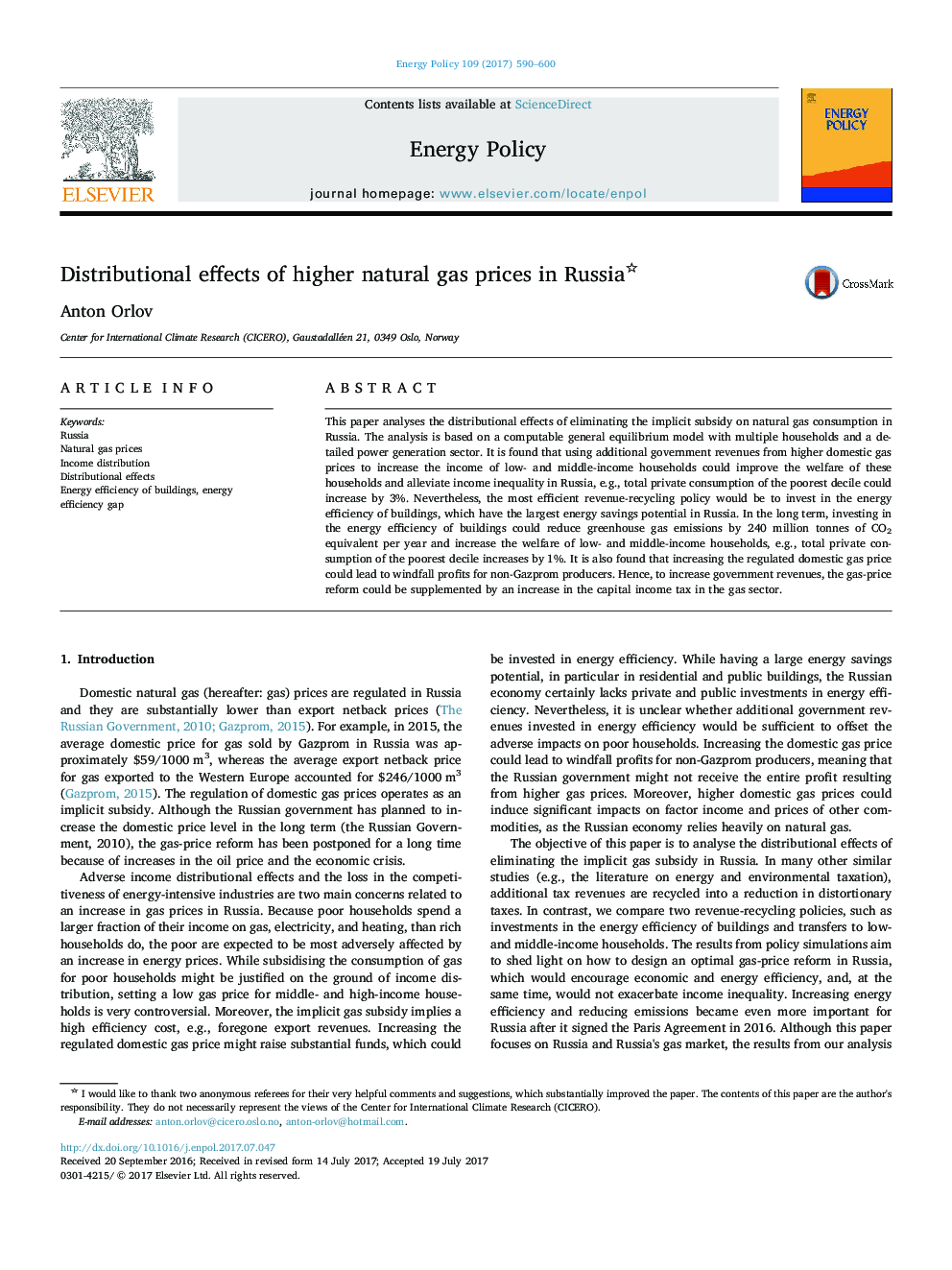| Article ID | Journal | Published Year | Pages | File Type |
|---|---|---|---|---|
| 5105728 | Energy Policy | 2017 | 11 Pages |
Abstract
This paper analyses the distributional effects of eliminating the implicit subsidy on natural gas consumption in Russia. The analysis is based on a computable general equilibrium model with multiple households and a detailed power generation sector. It is found that using additional government revenues from higher domestic gas prices to increase the income of low- and middle-income households could improve the welfare of these households and alleviate income inequality in Russia, e.g., total private consumption of the poorest decile could increase by 3%. Nevertheless, the most efficient revenue-recycling policy would be to invest in the energy efficiency of buildings, which have the largest energy savings potential in Russia. In the long term, investing in the energy efficiency of buildings could reduce greenhouse gas emissions by 240 million tonnes of CO2 equivalent per year and increase the welfare of low- and middle-income households, e.g., total private consumption of the poorest decile increases by 1%. It is also found that increasing the regulated domestic gas price could lead to windfall profits for non-Gazprom producers. Hence, to increase government revenues, the gas-price reform could be supplemented by an increase in the capital income tax in the gas sector.
Related Topics
Physical Sciences and Engineering
Energy
Energy Engineering and Power Technology
Authors
Anton Orlov,
